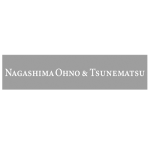In Japan, firewall regulation was introduced to prevent the distortion of market functions caused by transactions using parent-subsidiary relationships. Now, the purpose of firewall regulation extends to preventing harmful effects among group companies, specifically, to protect customer information, manage conflicts of interest, and prevent abuse of superior position.
The guidelines on the transfer of undisclosed information are one of the main thrusts of the firewall regulation, and are detailed below.
Outline of the regulation
Regulation on the transfer of undisclosed information prohibits securities companies from giving or receiving undisclosed information from parent companies or subsidiary companies, except in certain exceptional cases.
‘Undisclosed information’ means ‘undisclosed material information on the operation, business or properties of an issuer company, which is found to have an impact on customers' investment decisions.’ Although the definition of ‘undisclosed information’ is based on the view that such information that has not been made public should generally be treated as undisclosed information, it is not clear what information falls under ‘undisclosed information’, and therefore cautious judgement is required in practice.
Transfer based on written consent
As mentioned above, the transfer of undisclosed information to or from parent or subsidiary companies is prohibited in principle. Exceptionally, the transfer of undisclosed information is permitted if the issuer gives consent in writing or by electromagnetic records in advance.
In practice, comprehensive consent is obtained to allow the transfer of undisclosed information over a wide range of areas in many cases. This is provided, however, that even if comprehensive consent is obtained in a case where the issuer states its intention not to allow the transfer of specific information, the transfer is not permitted.
Opt-out measures
In cases where securities companies give the issuer an opportunity to suspend the provision of undisclosed information, it shall be deemed that the issuer has given its consent until the issuer requests the suspension.
To transfer undisclosed information on an opt-out basis, it is required to clarify certain matters. This includes the scope of undisclosed information to be transferred, the scope of the parent or subsidiary companies and the transfer method of undisclosed information. Furthermore, in cases where the opt-out approach is used, it is necessary to have appropriate measures. These could include a period of time necessary for judging whether the corporate customer opts out or not, or responding as promptly and appropriately as possible in cases where the corporate customer opts out.
In addition to the opt-out approach, the law was amended on April 22 2022 to permit the transfer of undisclosed information of listed companies, in cases where the transfer of such information to the parent or subsidiary companies may be suspended upon request. In this case it is also required to take appropriate measures as above, but the requirements are more lenient than in the case of the opt-out mechanism.
Exceptional cases
Other exceptional cases in which the transfer of undisclosed information is permitted include when it is transferred for the purpose of maintaining an electronic data processing system. Other examples include for the purpose of internal control, or when it is received or provided pursuant to laws and regulations.
Final thought
As outlined, there are certain restrictions on the exchange of undisclosed information. If a securities company conducts business in Japan, it is important to properly manage undisclosed information within its group companies.


